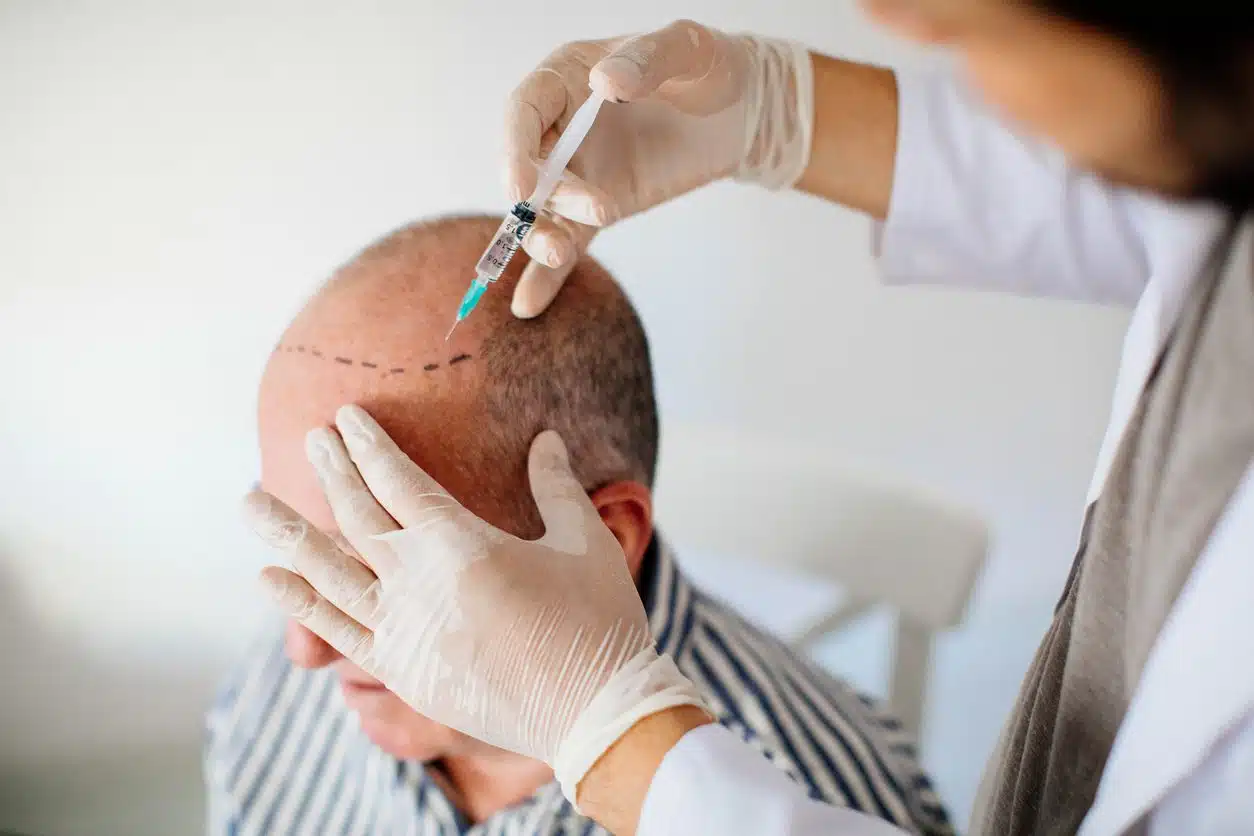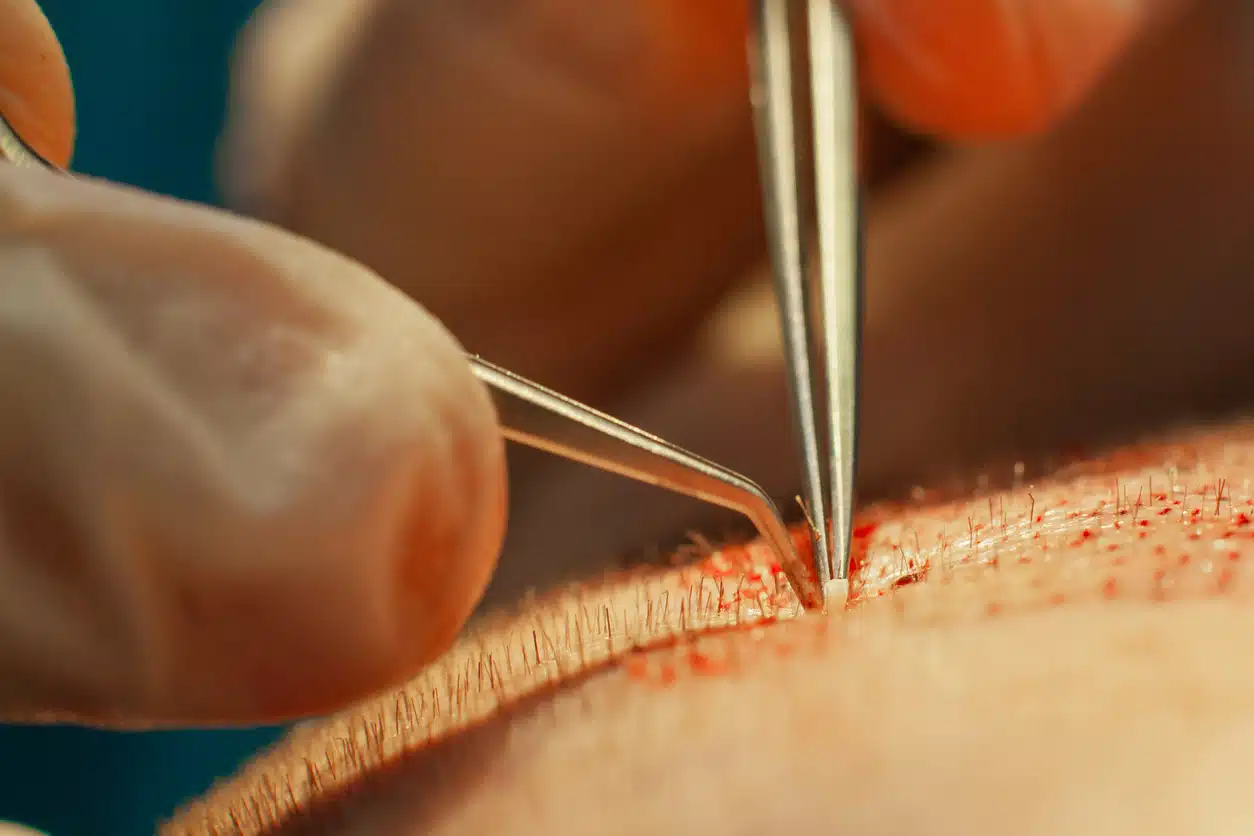Patient education plays a vital role in ensuring the safety and well-being of individuals undergoing hair transplant procedures. Empowering patients with knowledge about the process, potential risks, aftercare, and expected outcomes is essential for making informed decisions and minimising complications. In this article, we will explore the significance of patient education in hair transplants and how it contributes to a safer and more satisfying experience.
Understanding the Hair Transplant Procedure: Patient education begins with a comprehensive understanding of the hair transplant procedure. By explaining the surgical process, including the different techniques such as Follicular Unit Extraction (FUE) or Follicular Unit Transplantation (FUT), patients gain insight into the steps involved, the anaesthesia used, and the expected duration of the procedure. Understanding the surgical process helps alleviate any anxiety or apprehension the patient may have, promoting a more relaxed and cooperative experience.
Exploring Potential Risks and Complications: Every medical procedure carries a degree of risk, and it is essential for patients to be aware of the potential risks and complications associated with hair transplants. Educating patients about possible risks such as bleeding, infection, scarring, or allergic reactions to medications allows them to make an informed decision and take necessary precautions. Transparently discussing these risks helps manage expectations and ensures that patients are well-prepared for a safe hair transplant procedure.
Assessing Candidacy and Expectations: Patient education also involves assessing candidacy for a hair transplant and setting realistic expectations. Not every individual is a suitable candidate for a hair transplant, and factors such as the extent of hair loss, overall health, and donor area condition need to be considered. Educating patients about their candidacy ensures that they have realistic expectations about the potential outcomes and understand the limitations of the procedure. This helps prevent disappointment and dissatisfaction post-surgery.
Preparing for the Procedure: Preparing for a hair transplant is an important aspect of patient education. Patients should receive detailed instructions on pre-operative care, which may include guidelines on medication, alcohol consumption, smoking, and dietary restrictions. Additionally, patients may be advised to discontinue certain medications that can interfere with the procedure or recovery process. Providing clear pre-operative instructions ensures that patients are adequately prepared for their hair transplant and can contribute to a smoother and safer surgery.
Understanding Post-Operative Care: Patient education extends beyond the procedure itself to the post-operative care phase. Educating patients about the necessary post-operative care instructions is crucial for promoting proper healing and minimising the risk of complications. Instructions may include wound care, medication management, activity restrictions, and follow-up appointments. By understanding and adhering to these guidelines, patients can actively participate in their recovery process and contribute to the success of the hair transplant.
Managing Expectations: One of the key aspects of patient education is managing expectations. Patients often have specific goals and desires for their hair transplant results. It is important for them to understand that the outcome may take time to fully manifest and that multiple sessions may be required for optimal results. Educating patients about the timeline of hair growth, the potential for temporary shedding, and the gradual improvement in density and appearance helps them maintain realistic expectations and reduces unnecessary worry or disappointment.
Providing Reliable Resources and Support: In addition to personalised consultations, providing patients with reliable resources and support is essential for ongoing education and guidance. This can include informational pamphlets, online resources, or access to support groups where patients can connect with others who have undergone hair transplant procedures. Access to accurate information and a supportive community empowers patients to make informed decisions, seek advice, and share their experiences.
In conclusion, patient education is a crucial component of ensuring safety and well-being in hair transplant procedures. By providing comprehensive information about the procedure, potential risks, candidacy assessment, pre-operative and post-operative care, managing expectations, and offering ongoing support, patients are empowered to make informed decisions and actively participate in their safe hair transplant journey. Patient education not only promotes safety but also enhances patient satisfaction and contributes to positive long-term outcomes.





